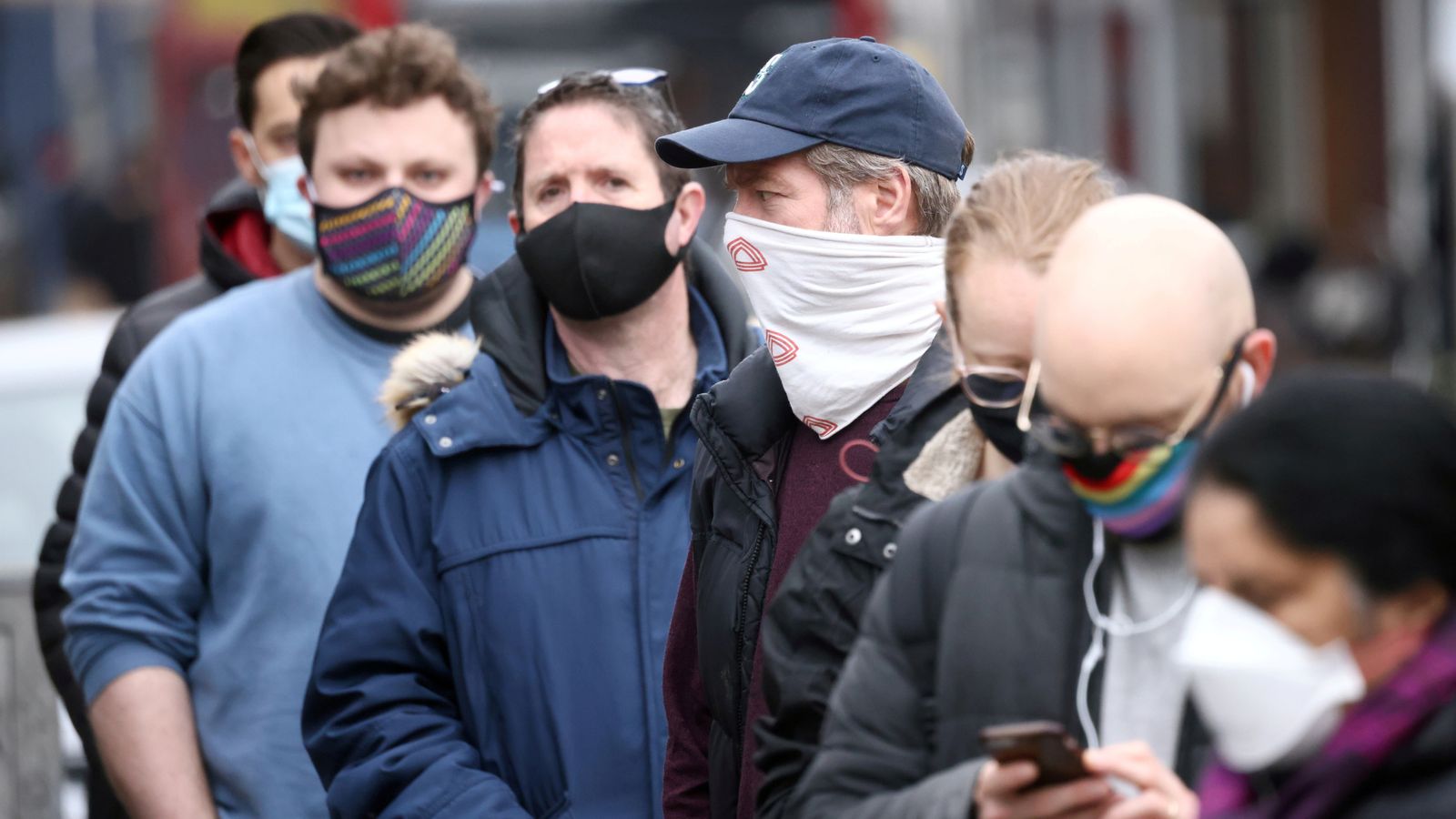For people who have had one dose of a COVID-19 vaccine, it seems that the jab offers better protection against variants if they previously had the virus.
Scientists have found that among those who received a single shot but were not infected in the past, the immune response against variants of concern may be insufficient and has even been called “feeble” – but it is still enough to have some impact.
In contrast, for those who contracted coronavirus previously, one vaccine shot gives “majorly enhanced” protection, the experts found.
Imperial College researchers looked at immune responses in healthcare workers at Barts and Royal Free hospitals in London following their first dose of the Pfizer/BioNTech vaccine.
They found that people who had previously contracted COVID-19 and had mild or asymptomatic symptoms had “significantly enhanced” protection against the Kent and South Africa variants after the first jab.
And it is possible the findings will apply to other variants in circulation, such as those first identified in Brazil and India, experts believe.
Some 731 healthcare workers were involved in the study, with around 20% previously having contracted COVID, mostly getting infected during the first UK lockdown.
Professor of immunology and respiratory medicine at Imperial, Rosemary Boyton, who led the research, said: “What we found was that you had really, really majorly enhanced responses if you’d had a history of (COVID-19) infection.”
She said they were “in a different league” in terms of immune response, adding: “Prior infection rescues your response against variants.
“You’re much more likely to be protected against the Wuhan strain but also against the variants.”
Prof Boyton said those who have not previously had COVID “made less potent immune responses, that may leave them vulnerable to infection”, adding this highlighted the importance of a second vaccine dose.
Danny Altmann, professor of immunology at Imperial, described the immune response of one vaccine dose for those who have not been previously infected as “feeble”, but added that it was still enough to have some effect.
“It’s very weak compared to two doses,” he said.
Asked whether the interval period between two doses of vaccine – which is currently 12 weeks in the UK – should be shortened, Prof Altmann said the research did not have policy implications and “if it ain’t broke, don’t fix it”.
He said: “We’ve got an awful lot of people that are either on zero or one vaccine dose. We’ve got a window of vulnerability to be aware of at a time where there are lots of variants of concern around the world.”
Another 122,039 people had their first dose of a vaccine on Thursday, taking the total to 34,216,087.
And 488,914 people had their second jab, meaning 14,532,875 are now fully vaccinated.
It comes as separate figures showed the number of people in England estimated to have COVID has dropped by 40% in a week.
Around 54,200 people were likely to have tested positive for the virus in the week to 24 April, according to the Office for National Statistics (ONS) data, which covers private households.
This is down from 90,000 the previous week, meaning about one in 1,010 people in private households in England had COVID in the week to 24 April – a fall from one in 610.
And it is the lowest figure since the week to 5 September, when the estimate stood at one in 1,400.
